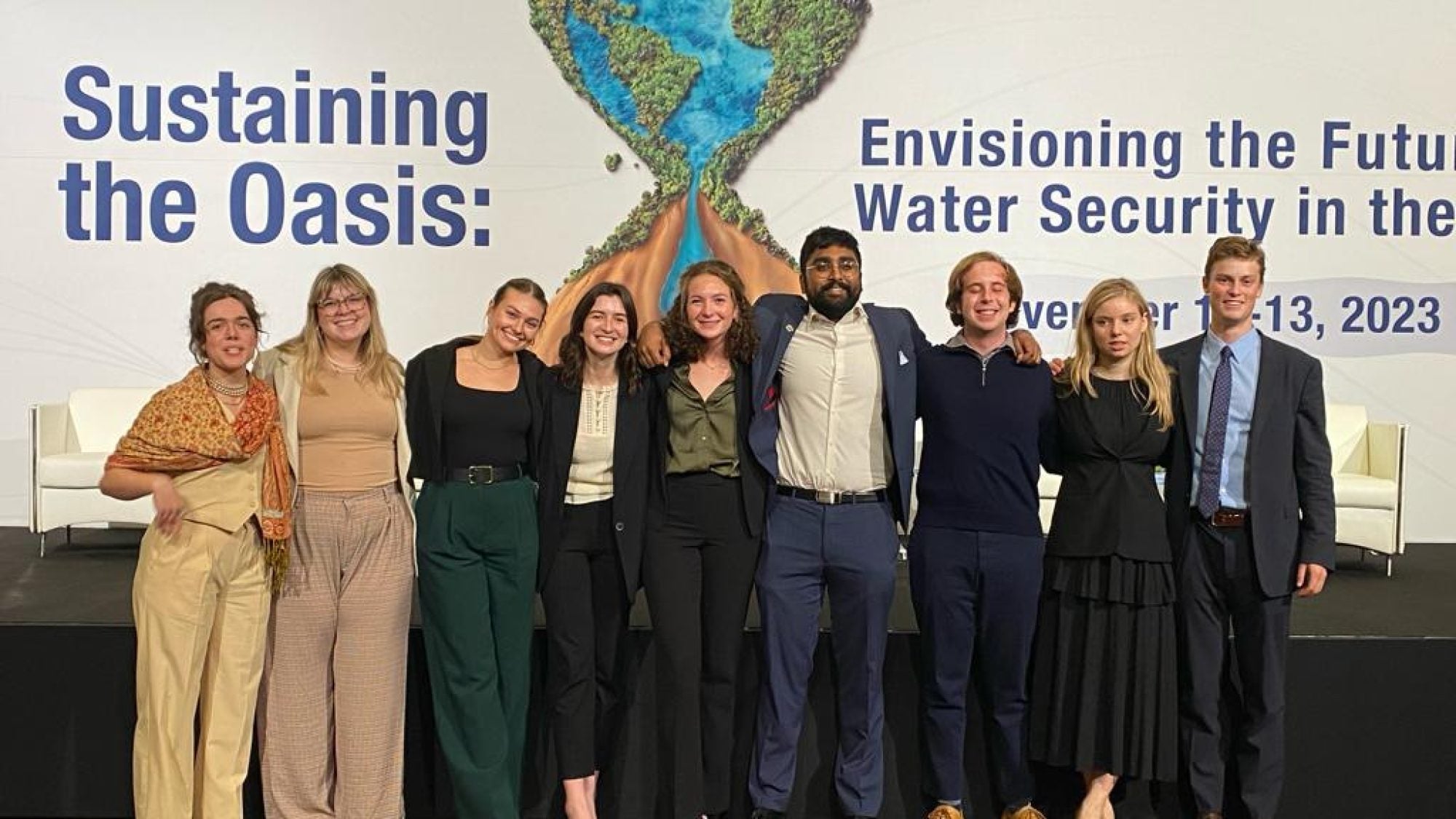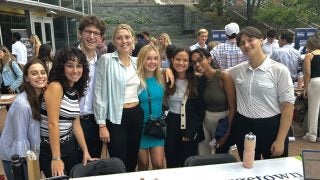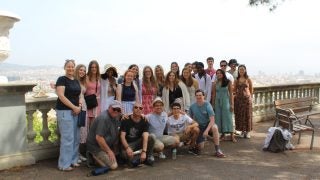Harsh (G’24) is a former IBM consultant and currently a master’s candidate in the Environment and Sustainability Management (ESM) program who is from Columbia, South Carolina.
I have long harbored a fascination with water security and accessibility. My grandparents were cotton and tobacco farmers in India, and they instilled in me an understanding of the paramount importance of water. Stories of my mother and aunts trekking miles each morning to fetch water before school left an indelible mark on me, emphasizing the critical nature of access to clean water from an early age. I later wrote about the topic in my personal statement when applying for the Environment and Sustainability Management (ESM) program in 2022.
So when a classmate asked me for help one day with an audio submission to a conference on water security in the Middle East, my interest was immediately piqued. I sent my application that very same day.
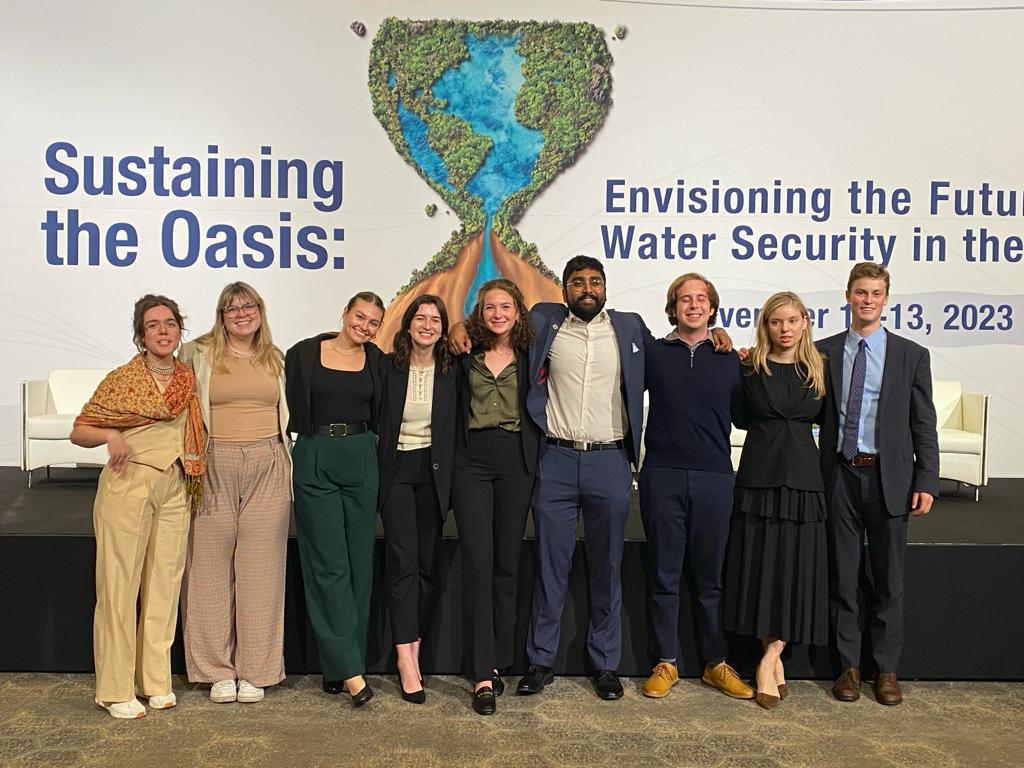
Sponsored by Georgetown’s Earth Commons Institute and Georgetown University Qatar, the conference explored the historical and future importance of water in the Middle East.
As an ESM student, I wanted to go to the conference to better understand the intersection of policy and sustainability, especially in the Middle East, a region I am contemplating moving to to work on sustainability issues. A fundamental aspiration from the ESM program that I aimed to carry into the conference was learning effective strategies to engender care and commitment toward the sustainability of water there. 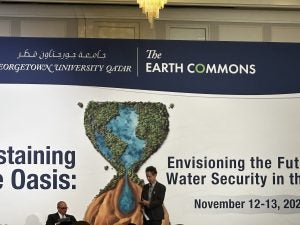
Before arriving in Qatar, I discovered some intriguing facts about water there: Qatari citizens receive water free of charge from the government, while permanent residents only pay for 25% of their usage. Approximately 60% of their water is derived from energy-intensive desalination processes, contributing to the country’s highest per capita energy consumption globally as of 2022. This process utilizes liquefied natural gas (LNG), exacerbating emissions and global warming. With these facts in mind, I wanted to understand Qataris’ perspectives on water, considering it as a free resource and examining the financial and political motivations behind employing such expensive technology. 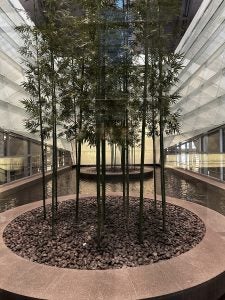
Upon landing at Doha airport, the abundance of water features lent the surroundings an oasis-like quality amidst the desert landscape. Our hotel view faced the Persian Gulf, the primary source of their desalinated water. Political tensions, particularly a blockade between Qatar and Saudi Arabia, spurred Qatar’s push toward self-sufficiency, emphasizing access to essential resources like water and food without reliance on imports.
During the conference, we heard from esteemed speakers and subject matter experts from various institutions. A prevailing takeaway was that many people in regions where desalination is prevalent take water for granted, unaware of its source. While advancements in desalination and wastewater treatment offer seemingly unlimited free water, this abundance fosters complacency and hinders the adoption of sustainable practices. 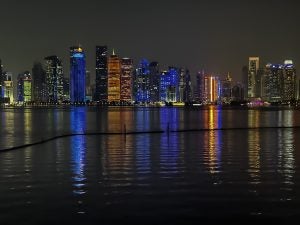
Paradoxically, the methods employed, reliant on LNG for power, contribute significantly to greenhouse gas emissions. This environmental challenge is compounded by the Middle East experiencing the impact of global warming at an accelerated pace compared to the rest of the world. Addressing water sustainability in the region poses an arduous task, necessitating long-term solutions despite these hurdles.
On a positive note, discussions revolved around integrating water education into youth programs, aiming to foster a more sustainable mindset. Efforts were also underway to make the water life cycle greener, creating opportunities to enhance sustainability in the region. These efforts are supported by a booming green finance market in the region that has increased jobs in water production, water treatment and agriculture.
From this trip, one key lesson shines through: We often overlook what’s readily available until it becomes scarce. Take water, for instance — we often take it for granted, unaware of its source. I’ve been guilty of this oversight.
Now, in class, I’ll pay closer attention to these overlooked details and acknowledge that our luxuries require active effort to sustain. Not everyone shares these privileges, so it’s crucial to show compassion and understanding towards others and their cultures on our shared planet. I will also carry these lessons into my future career where I hope to make the planet a more sustainable and equitable place by providing financing for green infrastructure projects and green-tech start-ups.
